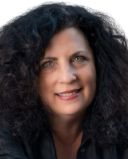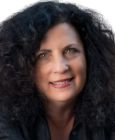Decision-Making
Cultivating Discernment
A skill for achieving greater clarity, attention, and decision-making.
Posted April 8, 2024 Reviewed by Davia Sills
Key points
- Discernment is a crucial life skill worth developing at any age and especially in college.
- Discernment is key to reading, writing, thinking well, and knowing the right questions to ask.
- Discernment is essential for success in academics and in one's professional and personal life.
After teaching college for nearly three decades, I’m at the point where I can boil down into a few words some of the most important qualities I see missing in too many students that, if developed and honed, would do wonders for their academic and personal lives. Here, I want to address discernment. Let’s unpack discernment, why it’s so crucial to cultivate this quality, and how college is a perfect place for sharpening and practicing it.

Students with a greater capacity for discernment are able to think more critically and creatively, think things through to their logical conclusions, consider unintended consequences, make healthier and more constructive decisions, and know what to let go of and how to resist catastrophizing.
Cultivating discernment in reading
One primary way that students reveal that they lack the ability to discern well is in how they come to talk about the main ideas of a reading assignment. I find myself telling students to think about the three main ideas of their reading as a way to prepare for writing a paper or taking a test. When asked to state those main ideas and discuss them in class, too many students are at a loss and, instead, bring up things that hardly qualify for even the minor points an author is making.
It’s clear to me that this correlates with an overall lack of reading in the first place. We have to read more to read better. We have to read more to think better. We have to read more to write better. And yet, too many students shamelessly state they don’t read and haven’t finished a book in years or a lifetime.
I get it; I didn’t love or even like reading as a junior high and high school student because I wasn’t assigned reading that held my interest. Classical fiction didn’t stir anything in me. But when I got to college and was assigned reading in my major that finally spoke to me, in a genre to which I gravitated most (nonfiction), I was off, and my imagination soared more. This is why I tell students that it helps to find something, anything, that they enjoy reading and that by doing so, other aspects of their lives will be enriched.
Cultivating discernment in what we consume
I’m sympathetic to a generation coming of age with oversaturation of information and reading materials. I didn’t grow up this way and still feel inundated by the overwhelming amount of content, not just in terms of articles to read but also in terms of podcasts to listen to, series to binge, and movies to watch. It’s a lot coming at us. It’s a lot to discern. It means discerning the good stuff from the junk.
This is important in terms of how we spend our time and our days, which is to say, our lives. And it means discerning accurate information from misinformation. This is crucial for a responsible, ethical, and learned society.
Cultivating discernment in formulating questions
Liberal arts disciplines, in particular, offer ample opportunities for students to see how most things in life aren’t black and white and how ambiguity is an important space from which to think, learn, and make decisions. When I teach, I ask my students to formulate questions about the material, both reading materials and visual materials. This is also a way to see what they are discerning. If people can ask insightful and thoughtful questions, they usually show a better grasp of class concepts.
Cultivating discernment in the age of AI
Adding to the challenges and complexity of strengthening one’s ability to discern is the advent of AI and students who rely on it. Without previously achieving strong skills in reading, writing, clear thinking, and asking good questions, the use of AI is shockingly bad. Using it well demands discernment.
Here is a rather stunning example. In a course I teach, I assigned my book, Welcome to Wherever We Are: A Memoir of Family, Caregiving, and Redemption, which is about caregiving for my adoring and abusive dad; it’s also about marriage, divorce, remarriage, friendship, creativity, aging, late-in-life divorce and remarriage, not having children, death and dying, grief and loss, and healing and recovery. But eerily, I wound up reading several papers discussing how I dealt with breast cancer and my children.
These students confused me with the Deborah Cohan who can dance, a remarkably fearless and badass human being and accomplished physician who went viral years back when she danced her way into her double mastectomy. She has become a friend, and so I texted her when I read these, letting her know we had become the same person in the eyes of these students and reminding her that if there was ever to be confusion over who I am, I am honored that of all people, she would be my doppelganger.
A simple Google search would have shown these students the mix-up and reminded them that I am their professor and not a physician specializing in HIV in pregnant women. But they had relied on AI, which combined Dr. Deborah Cohan and Dr. Deborah Cohan into one person, and they never even bothered to re-read their papers. Talk about an epic fail of mastering discernment in reading, analysis, thinking, questioning, reviewing, and proofreading.
Cultivating discernment in one’s personal life
Knowing how to be more discerning isn’t just reserved for academic and professional life; it’s also essential for our personal lives. It helps us distinguish between what is important and what is urgent. It helps us think about how we choose to spend our time and with whom.
In order to have meaningful intimate relationships and friendships, we have to be able to discern what constitutes healthy, happy, loving, and respectful ones from those that are not. In talking with students about intimacy and violence, it is abundantly clear how this is anything but obvious. For example, young women are likely to mistake someone’s jealous behaviors for interest in them rather than as the possessiveness it actually is. Those errors in discernment can set in motion patterns of vulnerability in controlling relationships.
Overall, cultivating greater discernment is about learning how to observe with care and curiosity and is a skill that takes students—and all of us—farther in our professional and personal lives.




